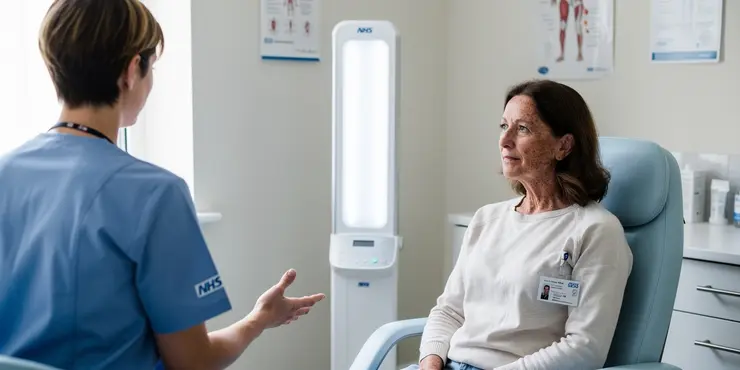
Find Help
More Items From Ergsy search
-
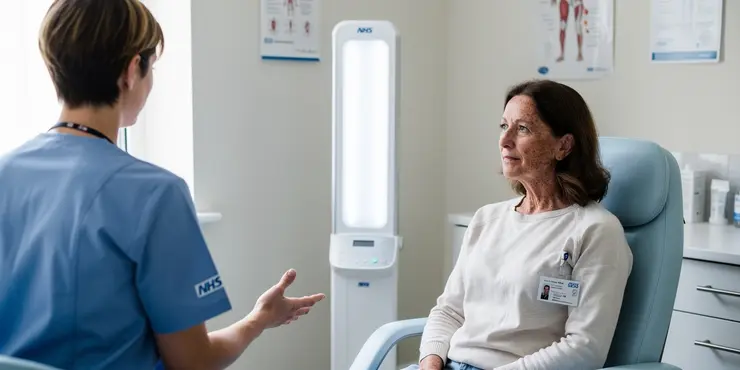
Can phototherapy help with psoriasis?
Relevance: 100%
-
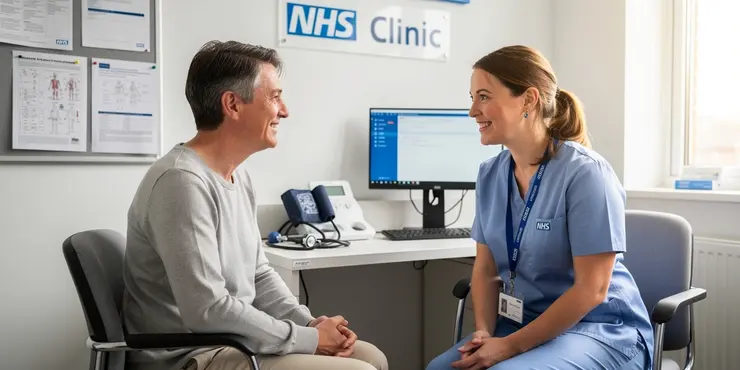
How to treat psoriasis
Relevance: 87%
-
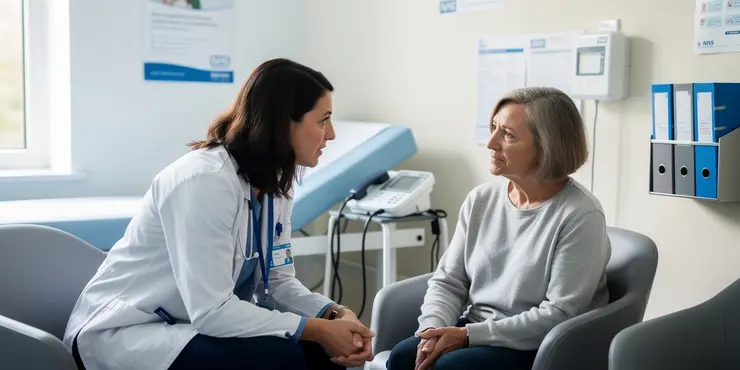
Psoriasis | NHS
Relevance: 86%
-
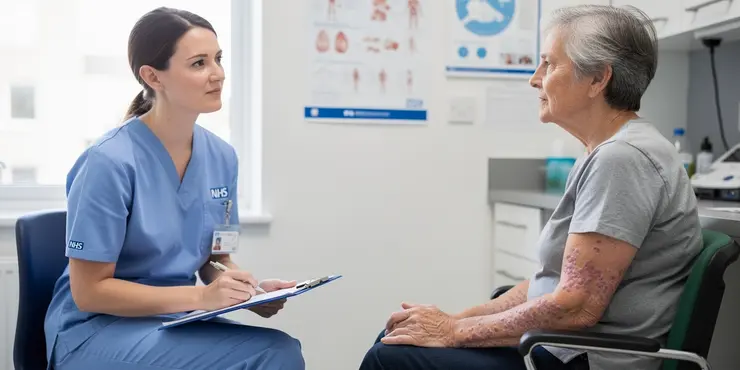
Is there a cure for psoriasis?
Relevance: 83%
-
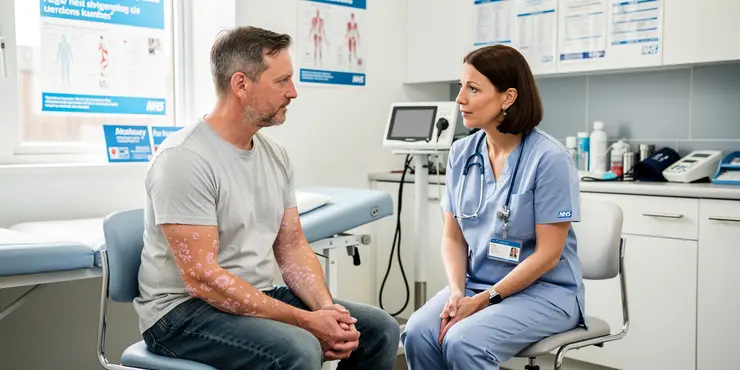
What treatment options are available for psoriasis?
Relevance: 81%
-
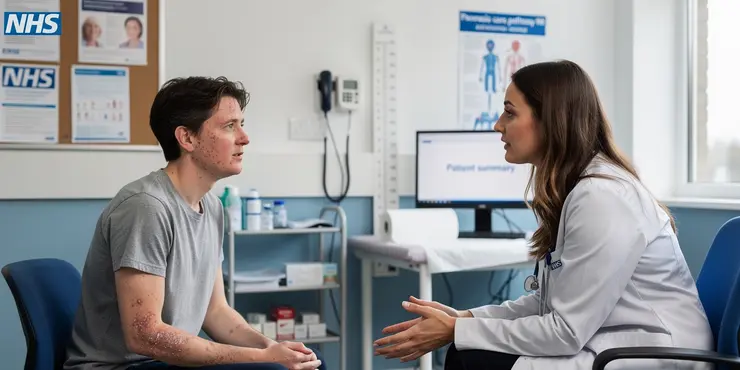
What is psoriasis?
Relevance: 79%
-
Is it true that sunbeds can help treat skin conditions like psoriasis?
Relevance: 79%
-
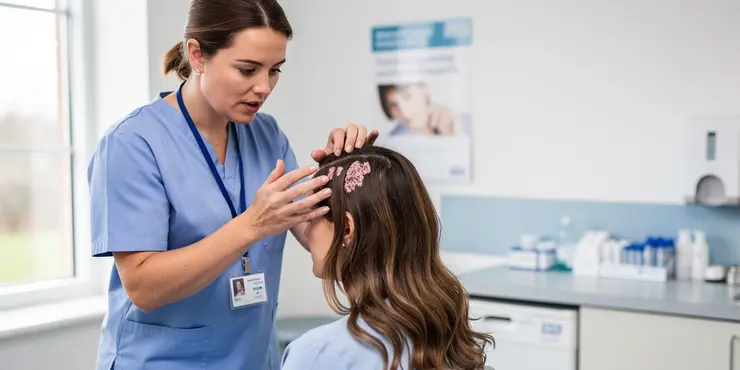
Treating scalp psoriasis
Relevance: 79%
-
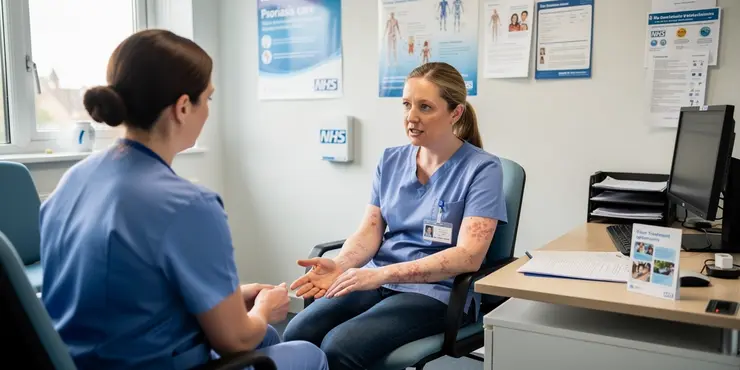
What are systemic medications for psoriasis?
Relevance: 73%
-
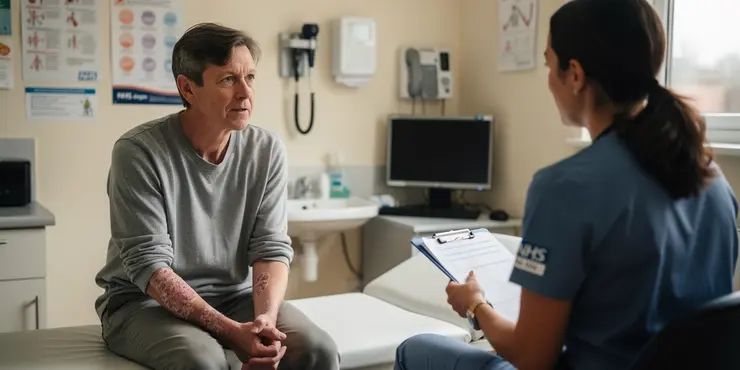
What causes psoriasis?
Relevance: 69%
-
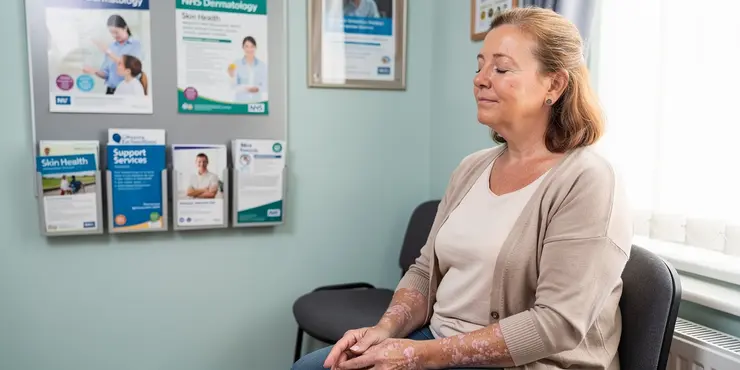
Can stress trigger psoriasis flare-ups?
Relevance: 68%
-
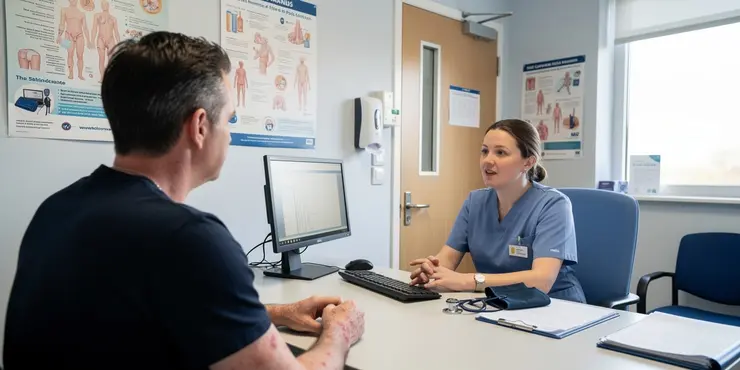
When should I see a doctor for psoriasis?
Relevance: 67%
-
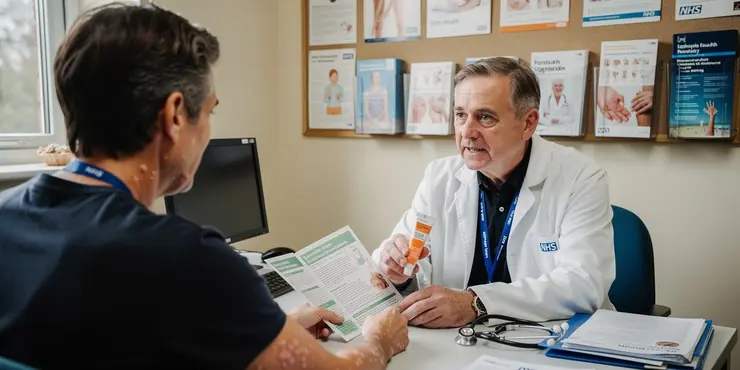
What are topical treatments for psoriasis?
Relevance: 65%
-
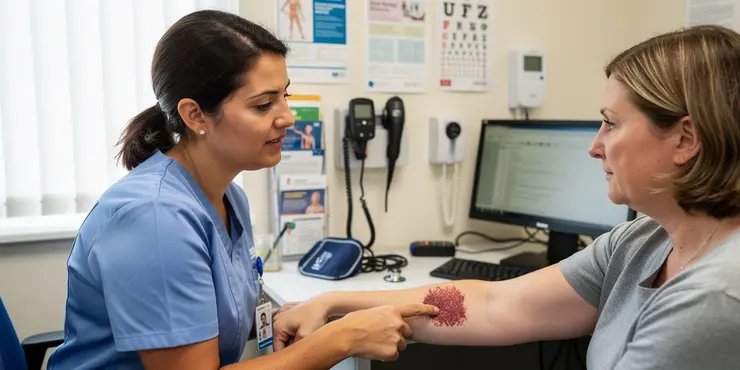
How is psoriasis diagnosed?
Relevance: 64%
-
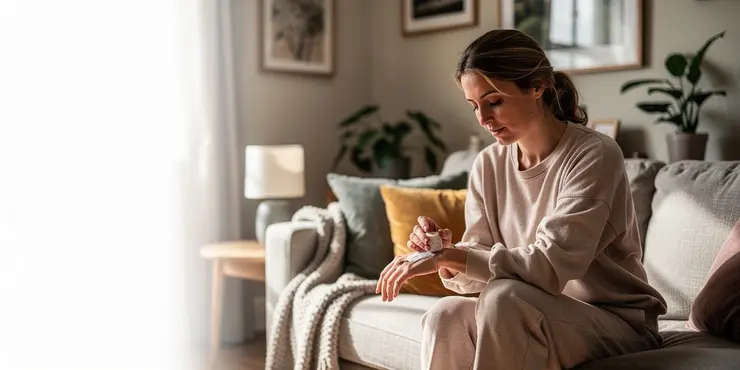
Are there home remedies for psoriasis?
Relevance: 63%
-

Can diet affect psoriasis?
Relevance: 62%
-
What role do lifestyle changes play in managing psoriasis?
Relevance: 56%
-
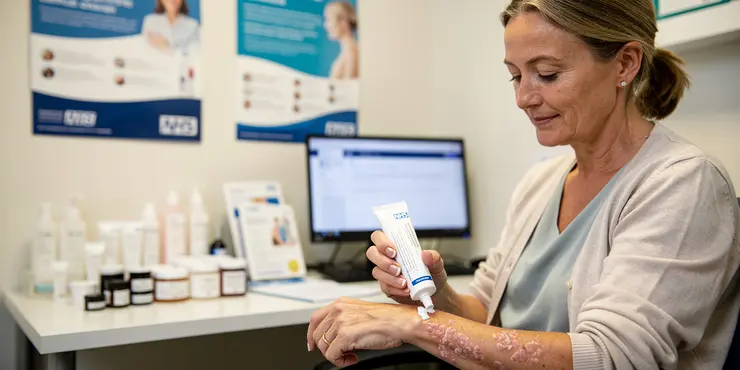
Can over-the-counter treatments help with psoriasis?
Relevance: 42%
-
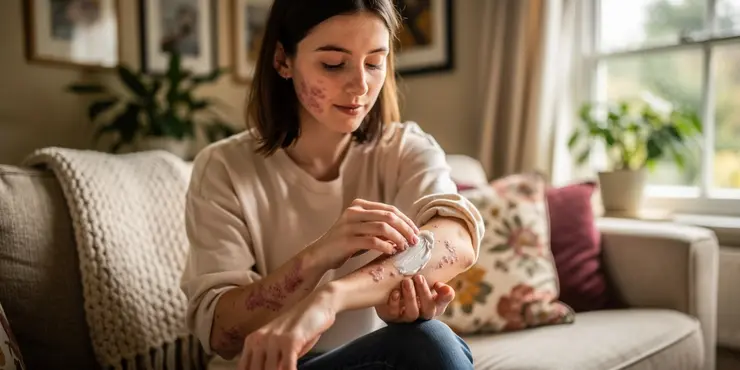
How important is it to keep the skin moisturised with psoriasis?
Relevance: 41%
-
How is jaundice in newborns treated?
Relevance: 27%
-
Is it safe to sunbathe a baby with jaundice?
Relevance: 24%
-
Can jaundice in newborns be serious?
Relevance: 21%
-
How long does jaundice typically last in newborns?
Relevance: 21%
-
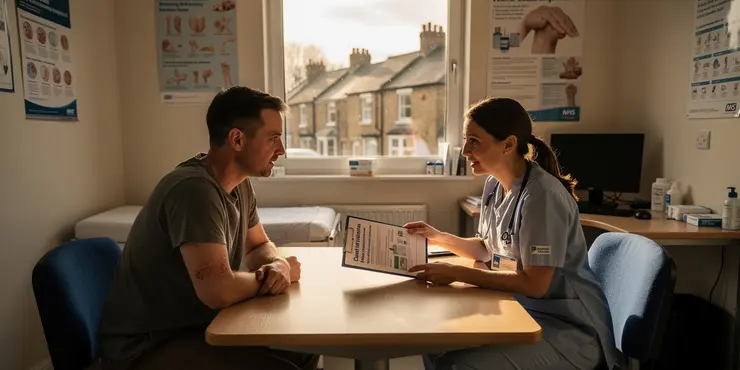
What treatments are available for eczema?
Relevance: 19%
-

Why are newborns more prone to jaundice than adults?
Relevance: 19%
-
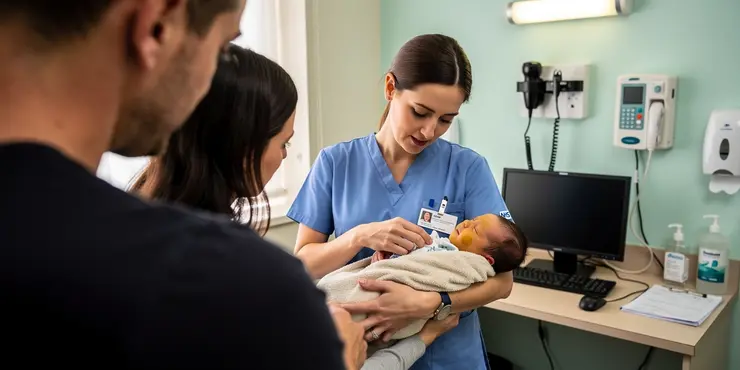
How common is jaundice in newborns?
Relevance: 18%
-
Do formula-fed babies get jaundice?
Relevance: 18%
-
Can breastfeeding cause jaundice?
Relevance: 18%
-

When does jaundice typically appear in newborns?
Relevance: 18%
-

Why do babies get jaundice?
Relevance: 15%
-
Does the mother’s blood type affect jaundice in the newborn?
Relevance: 14%
-
Are there any health benefits to tanning on sunbeds?
Relevance: 14%
-
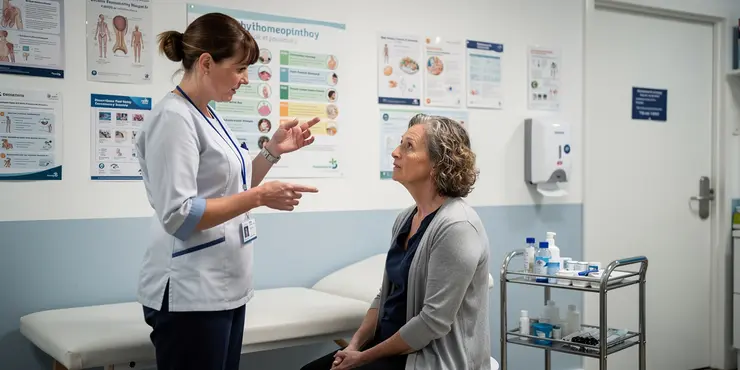
What are some common conditions treated with homeopathy?
Relevance: 14%
-
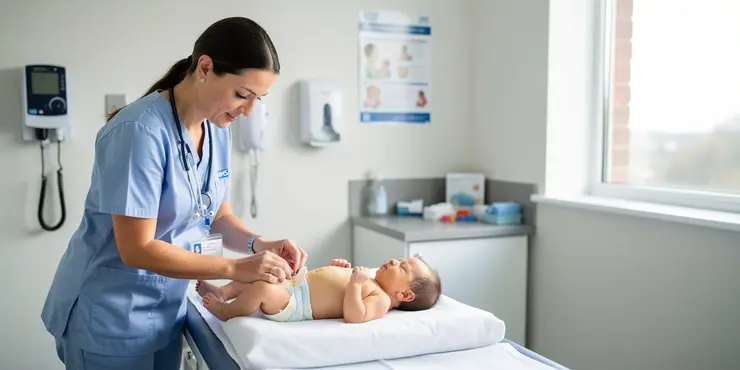
Jaundice in babies
Relevance: 13%
-
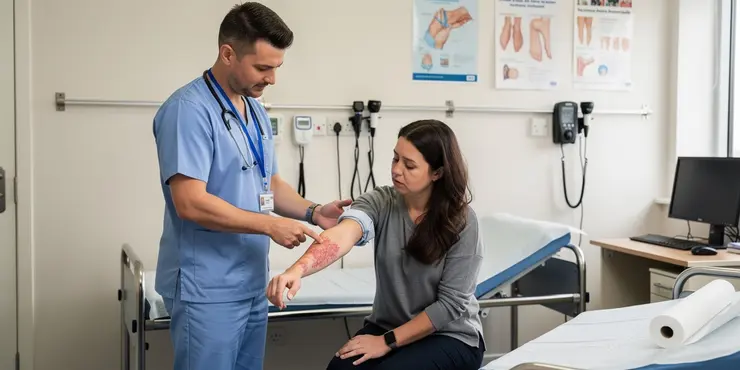
How can eczema be diagnosed?
Relevance: 13%
-
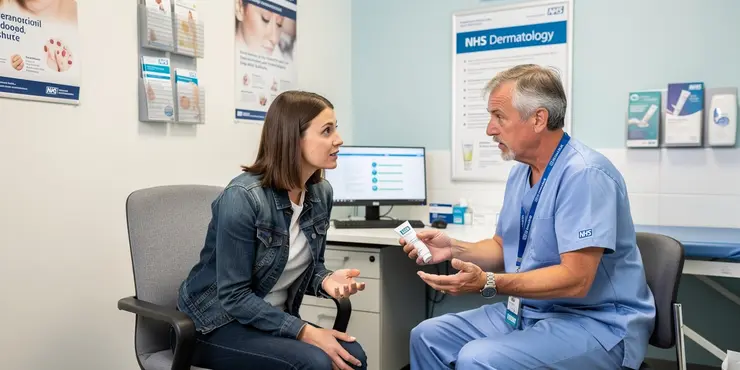
Steroid cream see Topical corticosteroids
Relevance: 13%
-
What is kernicterus?
Relevance: 13%
-
Can jaundice reoccur in babies?
Relevance: 13%
-
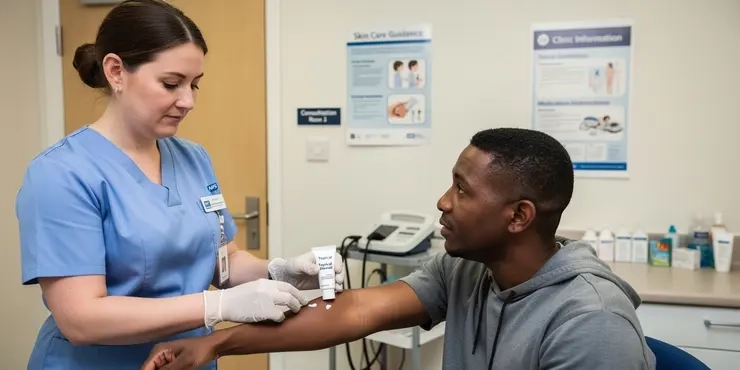
How to use topical steroids
Relevance: 12%
-
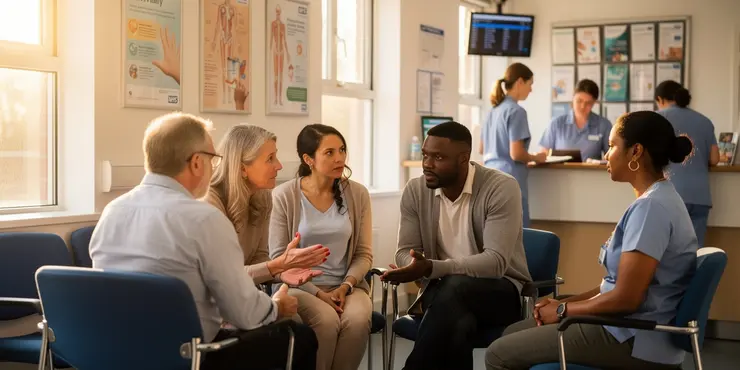
Is it possible to be allergic to the sun?
Relevance: 12%
Introduction to Psoriasis and Phototherapy
Psoriasis is a chronic skin condition that affects many individuals in the UK, causing red, scaly patches that can be itchy and painful. Managing psoriasis can be challenging, with various treatments available to alleviate the symptoms. One such treatment is phototherapy, which has been increasingly recognised for its effectiveness in managing psoriasis symptoms.
What is Phototherapy?
Phototherapy, or light therapy, involves exposing the skin to ultraviolet (UV) light under controlled conditions. The most common forms of phototherapy for psoriasis are narrowband UVB, broadband UVB, and PUVA (psoralen combined with UVA light). The type of phototherapy used depends on the severity of the psoriasis and how the patient responds to each type.
How Does Phototherapy Work?
Phototherapy helps to slow down the rapid growth of skin cells, which is characteristic of psoriasis. UVB light penetrates the skin and reduces the proliferation of skin cells, while also having anti-inflammatory effects that can help to reduce plaques. PUVA therapy combines UVA light with a drug called psoralen, which makes the skin more responsive to the UVA light, enhancing the treatment's effectiveness.
Effectiveness of Phototherapy for Psoriasis
Studies have shown that phototherapy can significantly improve symptoms for many people with psoriasis. It is particularly effective for plaque psoriasis, the most common form. Narrowband UVB phototherapy is often preferred because it uses a specific wavelength of light that has been found to be more effective and to have fewer side effects than broadband UVB phototherapy. Regular sessions over a period of weeks are generally necessary to achieve and maintain results.
Considerations and Side Effects
While phototherapy can be effective, it is not suitable for everyone. Patients need to commit to regular sessions, usually several times a week, and it can be time-consuming. Some people may also experience side effects, such as redness and itching, after treatment. Long-term exposure to UV light can increase the risk of skin aging and skin cancer, so it’s important to monitor skin thoroughly and follow the advice of a healthcare professional.
Conclusion
For those managing psoriasis in the UK, phototherapy presents a viable treatment option that can bring significant relief to many sufferers. By consulting with dermatologists and healthcare professionals, patients can determine if phototherapy is the right choice for their condition. It is essential to weigh the benefits against the possible side effects and to ensure the treatment is conducted in a controlled and professional setting to ensure safety and effectiveness.
Introduction to Psoriasis and Phototherapy
Psoriasis is a long-term skin problem. It makes red, scaly patches that can itch or hurt. Many people in the UK have it. It can be hard to deal with, but there are treatments that can help. One treatment is phototherapy, which can be very good at helping with psoriasis.
What is Phototherapy?
Phototherapy means using light to treat the skin. Doctors use special lights called ultraviolet (UV) light. There are different types of UV light treatments: narrowband UVB, broadband UVB, and PUVA. PUVA uses a UV light and a special medicine to help. The doctor will decide which type is best based on how bad the psoriasis is.
How Does Phototherapy Work?
Phototherapy works by slowing down how fast skin cells grow. This is good for psoriasis because the skin grows too fast and makes patches. UVB light goes into the skin and helps stop this. It also helps with swelling. PUVA uses a medicine and UVA light to work better.
Effectiveness of Phototherapy for Psoriasis
Phototherapy can help a lot of people with psoriasis. It works well for plaque psoriasis, which is the most common type. Narrowband UVB is often used because it works better and has fewer side effects. To get good results, people need regular sessions for several weeks.
Considerations and Side Effects
Phototherapy is not right for everyone. People need to go to treatment sessions often, which can take a lot of time. Some people might get red or itchy skin after treatment. Over time, being in UV light too much can cause skin aging and skin cancer. It's important to watch the skin closely and listen to the doctor.
Conclusion
Phototherapy can be a good option for people with psoriasis in the UK. It can help a lot. People should talk to their skin doctor to see if it is right for them. It’s important to think about both the good and bad sides of the treatment. It should be done safely and by professionals.
Frequently Asked Questions
Useful Links
This website offers general information and is not a substitute for professional advice.
Always seek guidance from qualified professionals.
If you have any medical concerns or need urgent help, contact a healthcare professional or emergency services immediately.
Some of this content was generated with AI assistance. We’ve done our best to keep it accurate, helpful, and human-friendly.
- Ergsy carfully checks the information in the videos we provide here.
- Videos shown by Youtube after a video has completed, have NOT been reviewed by ERGSY.
- To view, click the arrow in centre of video.
- Most of the videos you find here will have subtitles and/or closed captions available.
- You may need to turn these on, and choose your preferred language.
- Go to the video you'd like to watch.
- If closed captions (CC) are available, settings will be visible on the bottom right of the video player.
- To turn on Captions, click settings .
- To turn off Captions, click settings again.
More Items From Ergsy search
-

Can phototherapy help with psoriasis?
Relevance: 100%
-

How to treat psoriasis
Relevance: 87%
-

Psoriasis | NHS
Relevance: 86%
-

Is there a cure for psoriasis?
Relevance: 83%
-

What treatment options are available for psoriasis?
Relevance: 81%
-

What is psoriasis?
Relevance: 79%
-
Is it true that sunbeds can help treat skin conditions like psoriasis?
Relevance: 79%
-

Treating scalp psoriasis
Relevance: 79%
-

What are systemic medications for psoriasis?
Relevance: 73%
-

What causes psoriasis?
Relevance: 69%
-

Can stress trigger psoriasis flare-ups?
Relevance: 68%
-

When should I see a doctor for psoriasis?
Relevance: 67%
-

What are topical treatments for psoriasis?
Relevance: 65%
-

How is psoriasis diagnosed?
Relevance: 64%
-

Are there home remedies for psoriasis?
Relevance: 63%
-

Can diet affect psoriasis?
Relevance: 62%
-
What role do lifestyle changes play in managing psoriasis?
Relevance: 56%
-

Can over-the-counter treatments help with psoriasis?
Relevance: 42%
-

How important is it to keep the skin moisturised with psoriasis?
Relevance: 41%
-
How is jaundice in newborns treated?
Relevance: 27%
-
Is it safe to sunbathe a baby with jaundice?
Relevance: 24%
-
Can jaundice in newborns be serious?
Relevance: 21%
-
How long does jaundice typically last in newborns?
Relevance: 21%
-

What treatments are available for eczema?
Relevance: 19%
-

Why are newborns more prone to jaundice than adults?
Relevance: 19%
-

How common is jaundice in newborns?
Relevance: 18%
-
Do formula-fed babies get jaundice?
Relevance: 18%
-
Can breastfeeding cause jaundice?
Relevance: 18%
-

When does jaundice typically appear in newborns?
Relevance: 18%
-

Why do babies get jaundice?
Relevance: 15%
-
Does the mother’s blood type affect jaundice in the newborn?
Relevance: 14%
-
Are there any health benefits to tanning on sunbeds?
Relevance: 14%
-

What are some common conditions treated with homeopathy?
Relevance: 14%
-

Jaundice in babies
Relevance: 13%
-

How can eczema be diagnosed?
Relevance: 13%
-

Steroid cream see Topical corticosteroids
Relevance: 13%
-
What is kernicterus?
Relevance: 13%
-
Can jaundice reoccur in babies?
Relevance: 13%
-

How to use topical steroids
Relevance: 12%
-

Is it possible to be allergic to the sun?
Relevance: 12%


